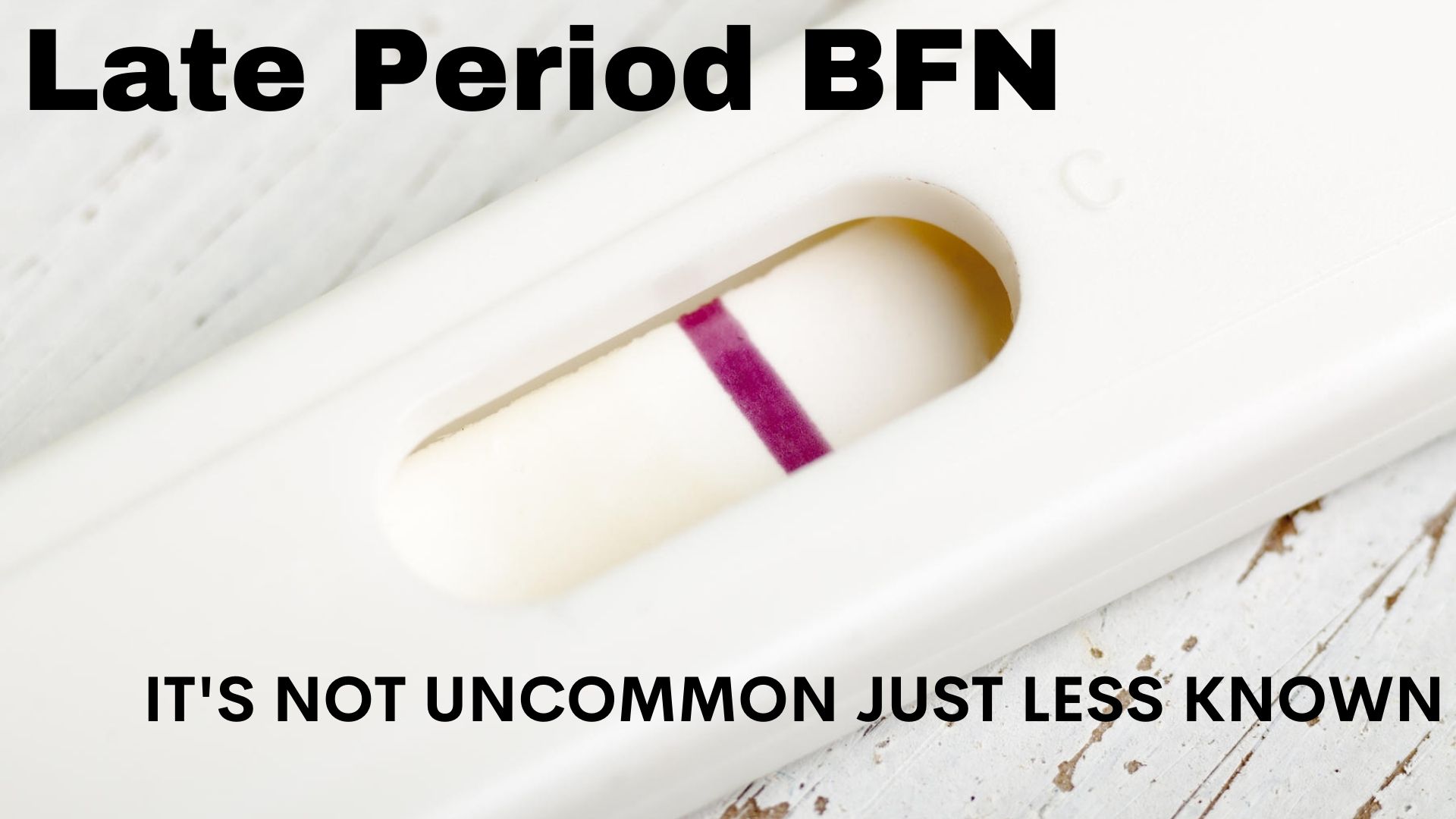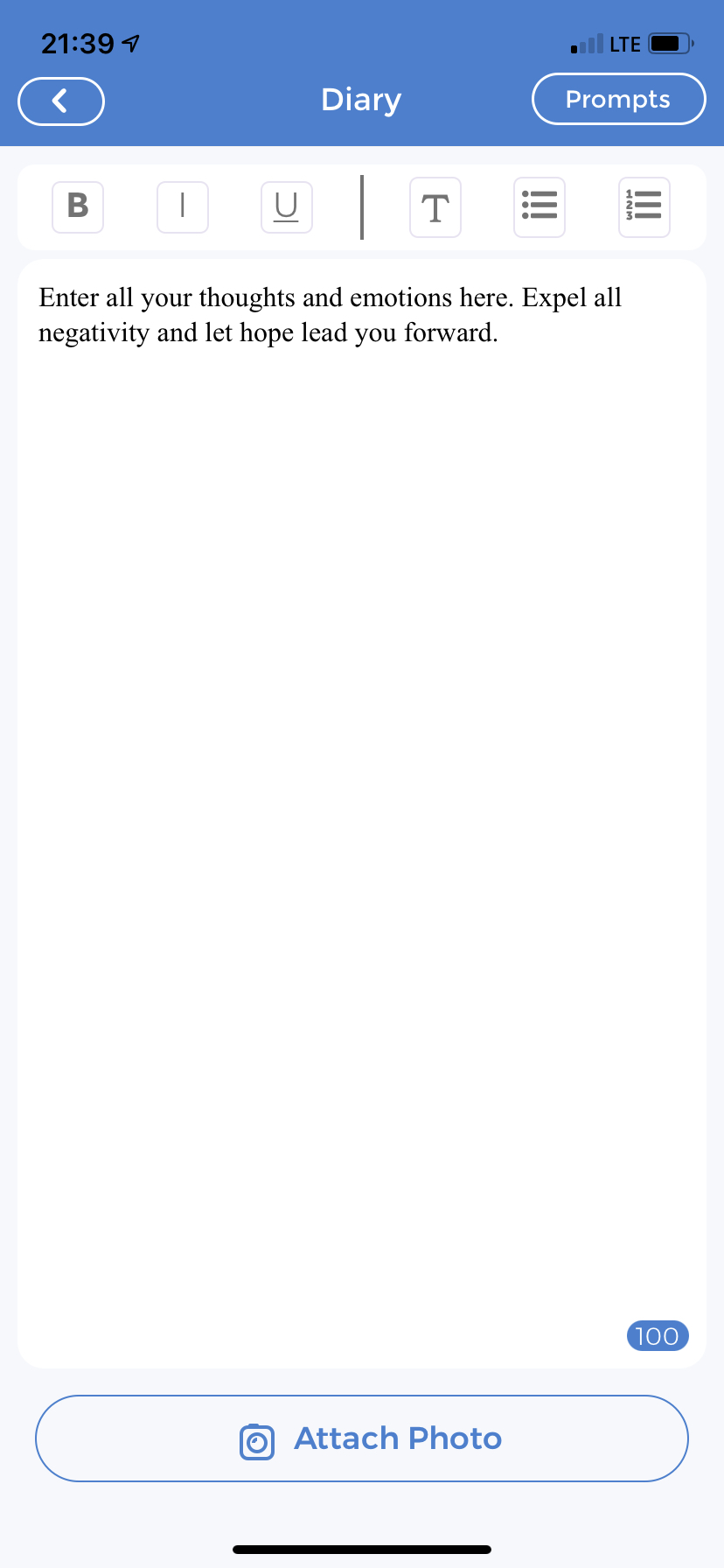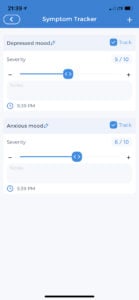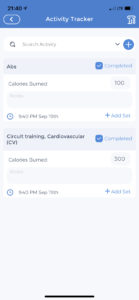
Is your period late? Do you think you could possibly be pregnant? Have you tested yourself? Did the test come back negative? If so, you could be experiencing late period BFN. If you do not know what late period BFN is, keep reading this article. It will explain the meaning of late-period BFN, the potential reasons behind it and then provide an all-inclusive care app to help track your next ovulation cycle better.
What is Late Period BFN?
In the late period BFN, the BFN stands for “big fat negative”. It is a clear indicator that the person taking the test is not pregnant. The opposite to the BFN is the BFP or “big fat positive”. This is a clear indication that you are pregnant. If you see a BFN on your pregnancy test or in other words, you do not see a line indicating you are pregnant, don’t be disheartened. Sometimes you can get a BFN due to a timing issue. The most accurate time to take a test is when you are close to your next period cycle. The closer you get, the more accurate the result. 96% of pregnancy tests are accurate on the day of your next expected period. Sometimes a BFN can occur up to 19 DPO, you can learn more about what to expect on other days, such as 7 DPO.
What Does BFN Stand For?
Do not get confused if you see the term BFN in an article but it has nothing to do with pregnancy. Within the medical community, BFN stands for a number of things apart from late period BFN. A few of the other definitions are:
- Breastfeeding Network – these are organizations that give you advice on how to breastfeed, the benefits of breastfeeding for mother and child, and, how long to do it for
- Benign Ethnic Neutropenia – this is an asymptomatic condition found in adults of African or Middle Eastern descent. Having benign ethnic neutropenia can put you at greater risk of contracting HIV or sickle cell disease.
Trying to get pregnant is stressful enough without being scared by a term you do not understand. This article aims to arm you with as much knowledge as possible to make your journey into pregnancy easier.
Why Does a Test Turn Positive or Negative?
There is a hormone that your body secretes when you are pregnant called Human Chorionic Gonadotrophin (hCG). It is important in the early stages of pregnancy. hCG is produced by cells that surround a growing embryo, which eventually forms the placenta. hCG can be detected in your body as early as 1 week post-fertilization, which is why your home pregnancy kit gives you a positive pregnancy result. In the case of late-period BFN, this hormone is not present in your urine and therefore will show a negative test. Most of the time this result is accurate; however, if your next expected period date comes and goes and you still have not had your period, test yourself again. In most cases, hCG is not detected in the first week or two. For most women, hCG is only detected after 5 weeks from the time of conception.
Talk to a Medical Professional
Even before trying to get pregnant for the first time, it is always advisable to talk to a medical professional. If you had experienced a late period BFN, it is all the more important to seek medical advice and understand all your options before re-embarking on this journey. In the case of a late period BFN, it is recommended that you talk to a handful of doctors to seek the best course of action. You can always talk to your primary care physician, but they too are likely to refer you to one of these specialists after you meet with them:
- CNM (Certified Nurse Midwife) – a nurse — usually an R.N. — who has completed graduate-level programs in midwifery and is licensed by the state. They usually have a collaborative relationship with a physician
- OB/GYN (Obstetrician/Gynecologist) – a doctor who specializes in women’s health
- RE (Reproductive Endocrinologist) – a doctor who specializes in treating reproductive disorders and infertility in women and men
There is no guarantee that once you talk to a doctor, you will 100% get pregnant. It does however, give you a better understanding of why you may be experiencing a late period BFN. Knowledge is power, so be armed with as much knowledge as possible to make your pregnancy journey as smooth as possible.
Reasons For Experiencing a Late Period?
Most women experience between 11 and 13 periods over the course of a year. You could experience more or less, depending on a number of factors. Some reasons that women miss their periods are as follows:
- Excessive weight loss or gain – Although low body weight is a common cause of missed or irregular periods, obesity also can cause severe menstrual problems
- Eating disorders – Having an eating disorder such as anorexia or bulimia can cause detrimental changes in your body causing a missed period
- Increased exercise – Too much exercise can cause missed periods
- Emotional stress
- Medicines – Birth control pills or IUDs can cause lighter periods, heavier periods or skipped periods. Since birth control affects the hormone levels to regulate periods it is relatively common to miss a period or two while your body adjusts to the new hormone levels
- Hormone problems – This may cause a change in the levels of the hormones that the body needs to support menstruation.
- Pelvic problems – imperforate hymen, polycystic ovary syndrome, or Asherman’s syndrome can all cause missed periods
- Breastfeeding – Many women do not resume regular periods until they have completed breastfeeding
Keep a close eye on your symptoms and if you think you could be pregnant or if the test comes out negative and you suspect late period BFN, talk to your doctor.
How to Deal with a Late Period BFN
Trying for a long time and being confronted with another late-period BFN is heartbreaking. You are not alone though. Eight out of 10 couples under the age of 40 can take up to a year to get pregnant from the time they start trying. Nine out of 10 couples, in general, will take 2 years to get pregnant. Knowing this information, however, doesn’t help the emotions that come with another failed attempt. Here are some mechanisms that can help:
Rebel
Rebelling in this instance does not mean not listening to medical advice, instead, it means to rebel against society’s expectation of “ok” and let yourself feel. Going through the depression, anger, and crying helps you get through this ordeal better and at times faster than if you bottled it up inside
Recognize
Recognize when the anger is turning counterproductive to your mental health. Being angry is expected, but becoming bitter is detrimental. When you feel the bitterness start, focus on something else. Hold onto the hope that you will get pregnant in the future and when you’re feeling up to it, try again.
Relax
Being relaxed physically and mentally puts you in a better position to find silver linings. You cannot control your situation. You did not do anything to cause the BFN. Therefore, continue to live your life and stop blaming yourself.
Rearrange Your Thinking
Change the thoughts of not being pregnant from negative to positive. For example, remind yourself that if you were pregnant at the next girls’ night out you wouldn’t be able to drink. Now you can. Also, remove the word never from your vocabulary. By thinking positively, you are inviting positivity into every part of your life.
Rescue Someone from the Late Period BFN Slump
You are not alone with a late period BFN. There are other women going through the exact same thing. Some of them do not know how to cope with a late period BFN. It might be their first time experiencing it. Help them through it, show them the tools you used. It can be an online forum, a support group, using a diary or journal, exercise or a host of other things. By finding a community that understands what you’re going through and helping someone else through this terrible time, you will start to heal. Just remember to never give up.
Some Other Methods to Cope with Late Period BFN
Sometimes the above method is more easily said than done. A great way to process grief is to use a journal or diary to expel emotions, exercise or change your mood with music.
Journaling
Writing, without having a particular goal in mind, can help work through things and identify patterns of thought. It can lead to a feeling of catharsis and allow you to free your mind. Journaling also helps create a roadmap of your journey, something for you to look back on and take inspiration from at a different point in time. You can record memories to help remind you of what you went through and how strong you are. Reading those memories at low points or a different stage in life will remind you of how far you’ve come.
Exercise
Exercise improves mental health by reducing anxiety, depression, and negative mood and by improving self-esteem. If you feel like you need to release energy to feel better, punch a punching bag. Running is also cathartic because it forces you to focus on what’s right in front of you rather than letting your mind wander to negative thoughts. Exercise is also very diverse. If you want to be around other people, it is easy to find classes. Maybe in those classes, you’ll find other women with similar experiences. If you feel like being alone, yoga is a great form of exercise that helps focus your breathing and centre your body.
Change Your Mood with Music
It is said that regardless of what kind of music you listen to, it can uplift your mood. Studies have found that at times, even sad music can be a mood elevator. It’s a great way to disconnect from the world and just let your thoughts flow. It also affords you the comfort of plugging in your headphones and listening to music anywhere, at any time. Sad music can provide a substitute for the feeling of loss when you see the late period BFN and similarly, happy music can provide hope for a brighter future.
Talk to a Therapist or Support Group
You are not alone in experiencing a late period BFN. You are not even alone in experiencing it multiple times over the course of a few months or years. There are support groups that exist online for you to look into. If you want to go in person, there will be easily searchable meetings in your area. It is also completely understandable if you want to deal with your grief one-on-one with a therapist. Expelling your emotions to a stranger is sometimes easier than talking to family and friends. There is no fear of being judged or pitied. If you feel like that is the best course of action for you, talk to your doctor and then book an appointment with a therapist to get started on healing.
Mood, Symptom, and Health Tracking for Late Period BFN
There is one app that can help with all your diary and tracking needs. The CareClinic app is an all-in-one care app. It is easy to use and can be accessed at all hours of the day. The app has a diary, symptom tracker and exercise tracker within one space. You also have access to hundreds of blog articles within the website that can shed light on other strategies or give you more information about mental health. The most unique part of the app is the fact that it can be shared with other people such as your doctor, therapist, and family members, to make treatment easier.
Many women also track other symptoms that happen around their cycle, like a UTI before their period. These patterns can be really helpful to understand your body better. When you track different symptoms together, you start to see connections you might have missed before.
Digital Diary for Tracking your Moods & Emotions

With diary entries, you can type up to 144 words per entry and post an unlimited number of entries per day. You can use the diary to track your moods any time you want. With learning strategies on how to cope with negative emotions, it is important not to let them fester and to note them down immediately. Instead of using pieces of paper that you could lose, open the diary app and have all the information at your fingertips. Do it long enough and you will start to recognize triggers that you can learn to avoid. Similarly, you can identify things that make you happy and incorporate more of them into your daily life.
Another great feature is the journal prompts. The best outlet for stress and fear that could affect your recovery is through a diary. Write about even the smallest of things. When learning how to cope with a loss or sensation of loss, even a small setback can affect your rate of recovery. If you do not know where to start, the prompts can help.
CareClinic has a check-in section that includes diary entries that can help track your treatment and prevention journey. This allows you to maintain a schedule to ensure you are doing your best to help heal your condition. You can use the diary or reminders option to stay on track with your medications. Using CareClinic, you can also include entries on how your progression has improved your day-to-day performance. Are the medications helping you? Which one relieves your symptoms the most?
Symptom Tracking for Late Period BPN

The CareClinic app has a symptom tracker that can track not only symptoms of negative thought patterns but also track changes in symptoms. The symptom check allows you to add any symptoms you feel before, during and after therapy. The app will allow you to set a reminder to check in with your symptoms. The more often you track changes in your symptoms, the more accurately you can understand the effect these therapies are having on your recovery. This will inform your decision of what kind of recovery therapy (group or individual) works best for you. It will also help decide how many times to go to therapy and when to stop.
Furthermore, you can track your sleeping patterns, daily physical activity, nutrition and other measurements to get informed reports about your body. You are also able to add custom fields to track what matters to you! Your symptom tracking makes it easier for your healthcare provider to make informed and accurate decisions.
Activity Tracking for Late Period BPN

This is a very helpful feature for doctors who have started you on a regimented exercise plan and need to regularly stay up-to-date with your progress. Beyond that, it’s a great way for you to track your exercise habits as well. Looking at emerging patterns from the days you exercise to how you track your mood can inform how well you are recovering. Every few weeks, you can reassess how much therapy you need based on the patterns that you see in the tracker. The great part about the activity tracker is that your family, friends, partner etc. can also keep track of your progress if you need extra motivation. They too can download the app and get involved in your recovery plan. Having that support can help speed up your recovery and get you ready for the next phase of life.
Tracking your workouts is one of the easiest ways to understand how your diet may be affecting your athletic performance. CareClinic enables you to track each one of your workouts by providing an easy-to-use Activity tracker. The Activity tracker results in your own personal training data repository. With this information, you can correlate what you ate that day with the level of performance you had in any given activity. Using the CareClinic app in this way makes it easy to understand if your diet is working for you instead of against you in your pursuit of greater performance
Nevertheless, CareClinic also provides you with reports to update you on the progress of your journey. This gives you detailed information on your symptom tracking and an overview of the improvement of your health.
Health Assistance for Late Period BFN
The CareClinic app is available on the App Store for IOS users, Google Play for Android users and on the CareClinic website for direct download.
Living with negative thoughts is lonely. A great way to get your worries and fears out is through using the app. Your best chance at recovery is to document every emotion as it comes to mind. Festering in negativity will only make recovery longer and stop you from wanting to try again. Use the CareClinic app and expel every negative thought to focus on a healthy recovery. Get tracking today.


